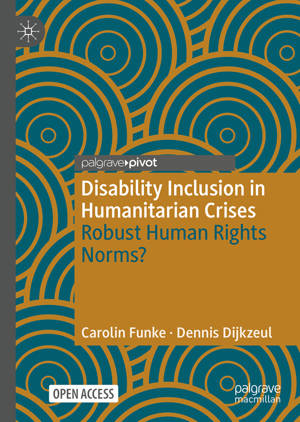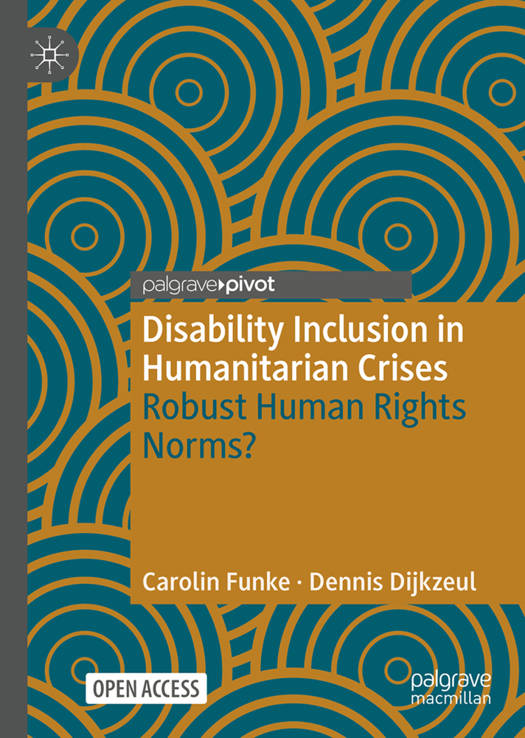
- Retrait gratuit dans votre magasin Club
- 7.000.000 titres dans notre catalogue
- Payer en toute sécurité
- Toujours un magasin près de chez vous
- Retrait gratuit dans votre magasin Club
- 7.000.0000 titres dans notre catalogue
- Payer en toute sécurité
- Toujours un magasin près de chez vous
Disability Inclusion in Humanitarian Crises
Robust Human Rights Norms?
Carolin Funke, Dennis DijkzeulDescription
This open access book studies disability inclusion in humanitarian crises. It addresses the challenges of recognizing and including persons with disabilities and indicates the degree to which disability is being mainstreamed in international law and humanitarian action. Further, it explores how international organizations have promoted a rights-based understanding of disability in international law, and to what extent this understanding has gained acceptance in humanitarian policy and practice. Theoretically, Funke and Dijkzeul explore the robustness of the disability inclusion norm cluster during processes of institutionalization, translation, and implementation. The book examines these processes from a multi-level perspective, which involves a variety of actors beyond states, including organizations of persons with disabilities. Situating their analysis within the literature on humanitarian action and development, the authors argue for an increased focus on processes "below" the international level in international relations and international law scholarship to better understand disability inclusion.
Spécifications
Parties prenantes
- Auteur(s) :
- Editeur:
Contenu
- Nombre de pages :
- 108
- Langue:
- Anglais
- Collection :
Caractéristiques
- EAN:
- 9783031538087
- Date de parution :
- 08-02-25
- Format:
- Livre relié
- Format numérique:
- Genaaid
- Dimensions :
- 158 mm x 216 mm
- Poids :
- 317 g

Les avis
Nous publions uniquement les avis qui respectent les conditions requises. Consultez nos conditions pour les avis.






